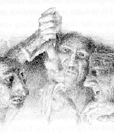| Naneth |
|
gwendethAccounts Admin, Sindarin Mod & Head Stargazer of VardaPosts: 5808 Send Message |
|
| rimbecanu |
|
| Naneth |
|
| oinklikeapig |
|
| Neneithel |
|
gwendethAccounts Admin, Sindarin Mod & Head Stargazer of VardaPosts: 5808 Send Message |
|
MalinornëFAQ Admin, Quenya Moderator & EldameldëPosts: 1205 Send Message |
|
| Bellenion |
|
| Naneth |
|
gwendethAccounts Admin, Sindarin Mod & Head Stargazer of VardaPosts: 5808 Send Message |
|
| Bellenion |
|
| Iavas |
|
| Tanquessiel |
|
| Bellenion |
|
gwendethAccounts Admin, Sindarin Mod & Head Stargazer of VardaPosts: 5808 Send Message |
|
MalinornëFAQ Admin, Quenya Moderator & EldameldëPosts: 1205 Send Message |
|
gwendethAccounts Admin, Sindarin Mod & Head Stargazer of VardaPosts: 5808 Send Message |
|
MalinornëFAQ Admin, Quenya Moderator & EldameldëPosts: 1205 Send Message |
|
| Megilwen |
|
gwendethAccounts Admin, Sindarin Mod & Head Stargazer of VardaPosts: 5808 Send Message |
|
MalinornëFAQ Admin, Quenya Moderator & EldameldëPosts: 1205 Send Message |
|
| PendhÃnen |
|
gwendethAccounts Admin, Sindarin Mod & Head Stargazer of VardaPosts: 5808 Send Message |
|
| vampira0310 |
|
| Dracovana |
|
| LuthientheTinuviel |
|
| Naruvir |
|
| Galadivren |
|
| Cillendor |
|
| Galadivren |
|
| Cillendor |
|
| Cillendor |
|
| Galadivren |
|
| Cillendor |
|
 Author
Author








 RE: Translate poems here
RE: Translate poems here
 Gwendeth
Gwendeth



 encoded. Make sure you have adjusted the encription
encoded. Make sure you have adjusted the encription
